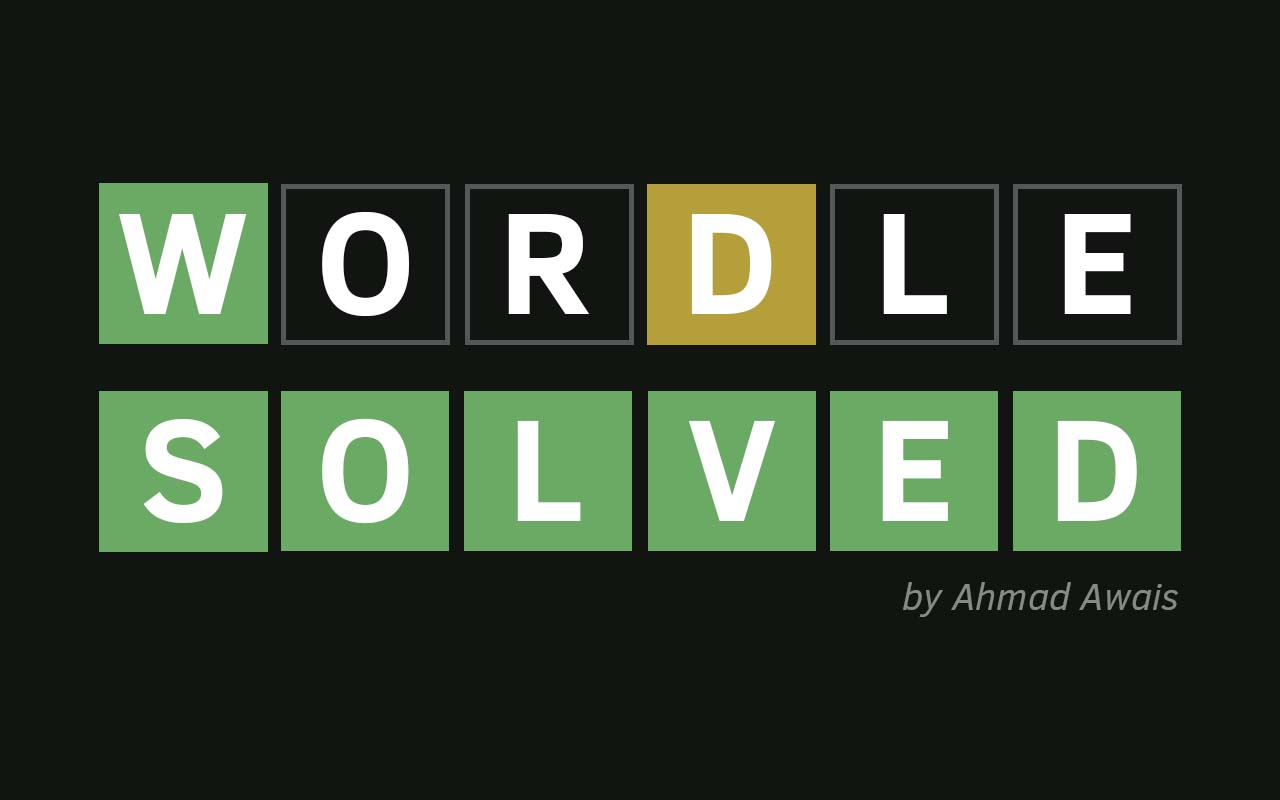In the vast landscape of word games, Reverse Wordle emerges as a unique and captivating challenge, offering players a fresh twist on the classic format. Unlike its counterpart, where players guess a secret word using clues provided by the game, Reverse Wordle flips the script, tasking players with deducing the secret word based on a series of guesses. In this comprehensive guide, we delve into the intricacies of Reverse Wordle, exploring strategies for success, the importance of critical thinking, and techniques for unraveling even the most elusive of words.
Unveiling Reverse Wordle: A New Twist on the Classic Game
Reverse Wordle takes the traditional word-guessing game and turns it on its head, challenging players to think outside the box and approach the puzzle from a different angle. Instead of being presented with a secret word and using deductive reasoning to uncover it, players must now rely on their wits and intuition to guess the word based on limited information. This inversion of the game’s mechanics adds a layer of complexity and excitement, drawing players into a world of strategic thinking and linguistic exploration.
How to Play Reverse Wordle
Playing Reverse Wordle requires a blend of deductive reasoning, pattern recognition, and strategic guessing. The game typically begins with a blank slate, where players are presented with a series of blank spaces representing the letters of the secret word. With each guess, players receive feedback indicating whether each letter guessed is present in the word and if it is in the correct position. Armed with this information, players must carefully analyze the clues and make informed guesses to narrow down the possibilities and ultimately unravel the mystery of the secret word.
Strategies for Success
To excel at Reverse Wordle, players must adopt a strategic approach that combines analytical thinking with creative problem-solving. One effective strategy is to start by guessing letters that are likely to appear frequently in words, such as vowels like “A,” “E,” and “O.” By doing so, players can quickly gather information about the composition of the word and begin to eliminate unlikely possibilities. Additionally, paying attention to letter patterns and word structure can provide valuable insights into potential solutions, allowing players to make educated guesses and refine their strategy with each attempt.
The Importance of Deductive Reasoning
Deductive reasoning plays a crucial role in Reverse Wordle, allowing players to systematically narrow down the possibilities and home in on the correct answer. By carefully analyzing the feedback provided after each guess, players can identify patterns, eliminate unlikely options, and refine their approach to maximize their chances of success. This process of elimination is essential for gradually whittling down the list of potential words until the correct one is revealed, demonstrating the power of logical thinking and strategic decision-making in overcoming even the most challenging of puzzles.
Efficient Guessing Techniques
In Reverse Wordle, making efficient guesses is key to conserving limited resources and maximizing the likelihood of success. Rather than approaching the game haphazardly, players should focus on making informed guesses that yield the most valuable information with each attempt. This may involve strategically selecting letters based on their likelihood of appearing in the word, as well as considering the context of previous guesses to identify patterns or clues that can inform future decisions. By adopting a thoughtful and strategic approach to guessing, players can optimize their chances of unraveling the secret word and emerging victorious in the game.
Recognizing Common Word Patterns
One effective strategy for deciphering the secret word in Reverse Wordle is to leverage an understanding of common word patterns and structures. By recognizing prefixes, suffixes, and root words, players can deduce the likely composition of the word and narrow down the possibilities accordingly. Additionally, paying attention to letter combinations and sequences can provide valuable insights into potential solutions, allowing players to make educated guesses and refine their strategy with each attempt. By leveraging this knowledge of linguistic patterns and structures, players can enhance their ability to unravel even the most challenging of words and achieve success in Reverse Wordle.
Mindful Letter Selection
In Reverse Wordle, every letter guessed carries weight, making mindful letter selection essential for success. Rather than randomly guessing letters, players should carefully consider the likelihood of each letter appearing in the word and prioritize their guesses accordingly. This may involve focusing on vowels and consonants that are commonly found in words, as well as avoiding redundant or non-informative guesses that do not provide valuable insights into the composition of the word. By adopting a thoughtful and strategic approach to letter selection, players can optimize their chances of unraveling the secret word and emerging victorious in Reverse Wordle.
The Role of Trial and Error
Trial and error is an integral part of the Reverse Wordle experience, allowing players to learn from their mistakes, refine their strategies, and ultimately achieve success. While some guesses may lead to dead ends, each attempt provides valuable information that can inform future decisions and guide players towards the correct answer. By embracing the iterative nature of the game and maintaining a willingness to adapt and evolve, players can overcome obstacles, overcome challenges, and ultimately unravel the mystery of the secret word.
Managing Guess Limitations
In Reverse Wordle, players are often faced with limitations on the number of guesses they can make, adding an element of strategy and resource management to the game. To maximize their chances of success, players must carefully manage their guesses, balancing the need to gather information with the risk of exhausting their resources prematurely. This may involve prioritizing high-value guesses that are likely to yield valuable insights, as well as conserving guesses for later rounds when the solution is within reach. By adopting a strategic approach to guess management, players can optimize their chances of unraveling the secret word and achieving victory in Reverse Wordle.
Advanced Strategies for Expert Players
For experienced Reverse Wordle players looking to take their skills to the next level, there are a variety of advanced strategies and techniques that can be employed to increase their chances of success. One such strategy is to utilize anagram-solving techniques, which involve rearranging the letters of potential words to uncover hidden solutions. Additionally, applying linguistic analysis to identify word roots, prefixes, and suffixes can provide valuable insights into potential solutions and help players narrow down their options more effectively. By leveraging these advanced strategies and techniques, expert players can enhance their ability to unravel even the most challenging of words and achieve mastery in Reverse Wordle.
Leveraging External Resources
While Reverse Wordle is a game of skill and strategy, players are not limited to relying solely on their own abilities to succeed. There are a variety of external resources and tools available that can aid players in their quest to unravel the secret word. For example, word lists and databases can provide valuable reference material, allowing players to quickly look up potential solutions and identify patterns or associations that may not be immediately apparent. Additionally, collaborative play and crowd-sourced solutions can provide players with access to a diverse range of perspectives and strategies, enabling them to tackle the game’s challenges from multiple angles and increase their chances of success.
You read also more : simple mobile plans
Maintaining Focus and Patience
In the fast-paced world of Reverse Wordle, maintaining focus and patience is essential for success. While the game can be challenging and frustrating at times, it’s important to remain composed and avoid making hasty decisions that could compromise your chances of success. By staying calm, focused, and patient, players can approach the game with a clear mind and a steady hand, allowing them to make informed decisions and navigate the complexities of the puzzle with confidence. Additionally, taking breaks when needed and allowing yourself time to recharge can help prevent burnout and




